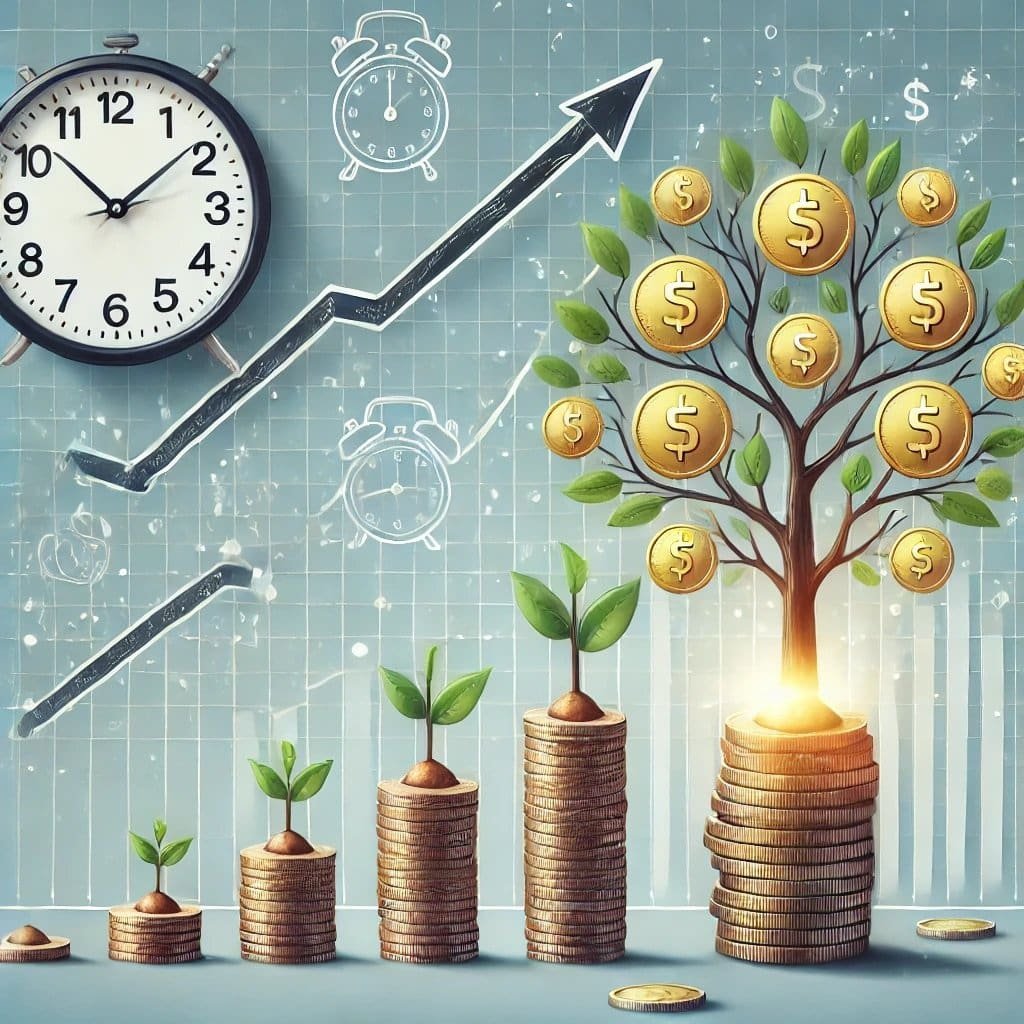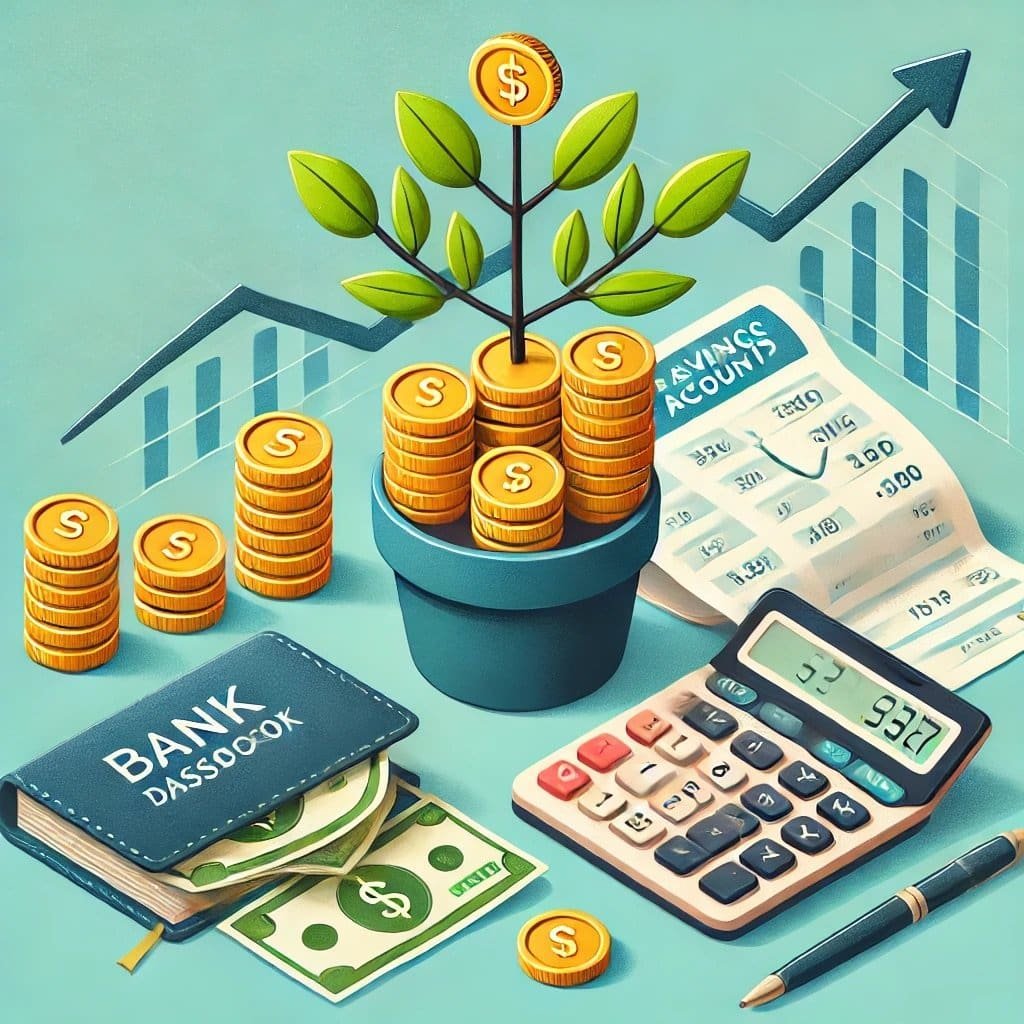Compound interest is one of the most powerful tools for building wealth over time. It allows your money to grow exponentially by earning interest not only on your initial investment but also on the accumulated interest from previous periods. The longer you let your investments compound, the more significant the growth becomes. Here’s how compound interest works and why it’s a key factor in wealth accumulation.
What is Compound Interest?
Compound interest is interest calculated on both the initial principal and the interest that has been added over time. Unlike simple interest, which is only calculated on the principal amount, compound interest allows your earnings to generate additional earnings.
• Formula for Compound Interest:
Where:
• is the amount of money accumulated after years, including interest.
• is the principal amount (initial investment).
• is the annual interest rate (decimal).
• is the number of times interest is compounded per year.
• is the number of years the money is invested or borrowed for.
How Compound Interest Works
Compound interest allows your investment to grow faster over time, as you earn interest not only on your principal but also on the accumulated interest from previous periods. Here’s how it works:
1. Initial Investment: You start by investing a principal amount, whether it’s $1,000 or $10,000.
2. First Interest Calculation: At the end of the first period (say, one year), interest is calculated on the initial principal.
3. Interest on Interest: In the next period, interest is calculated on the original principal plus the interest from the first period. This process repeats, allowing your investment to grow at an increasing rate.
Example of Compound Interest
Let’s say you invest $10,000 at an interest rate of 5% compounded annually. After 10 years, using the formula, you’ll have:
After 10 years, your investment would grow to $16,288.95, with $6,288.95 earned in interest. If you left the investment for another 10 years, the compounding effect would accelerate, and you’d earn even more without additional contributions.
The Importance of Time
The key to maximizing compound interest is time. The longer your money is invested, the more it compounds, and the more exponential the growth becomes. Even small amounts can grow into substantial sums if given enough time to compound.
• Starting Early: Starting to invest early gives you a significant advantage, even if you’re investing smaller amounts. For example, investing $100 a month from age 25 to 35 can grow larger than investing $200 a month from age 35 to 45, thanks to the additional time for compounding.
Frequency of Compounding
The frequency of compounding affects how quickly your investment grows. Interest can be compounded annually, semi-annually, quarterly, or even daily. The more frequently interest is compounded, the faster your investment will grow. For example, daily compounding will result in more growth than annual compounding at the same interest rate.
The Power of Reinvestment
To fully take advantage of compound interest, it’s important to reinvest your earnings. Whether you’re earning interest, dividends, or capital gains, reinvesting them allows your returns to compound and grow your wealth even faster. Many investment platforms and retirement accounts offer automatic reinvestment options to help your money grow over time.
Compound Interest in Investments
1. Savings Accounts: Most savings accounts offer compound interest, though the rates are typically lower. High-yield savings accounts compound daily or monthly, which can help your savings grow steadily.
2. Stocks and Dividends: If you invest in dividend-paying stocks, you can reinvest your dividends to buy more shares, which then generate more dividends, creating a compounding effect over time.
3. Bonds: Interest from bonds can be reinvested, allowing your bond holdings to grow. Fixed-income investments that compound can offer stable, consistent growth.
Inflation and Compound Interest
While compound interest is powerful, it’s essential to account for inflation, which erodes the purchasing power of your money over time. To stay ahead of inflation, it’s crucial to invest in assets that outpace inflation, such as stocks or high-yield bonds, rather than low-interest savings accounts.
Conclusion
Compound interest is a crucial factor in wealth building, allowing your investments to grow exponentially over time. The earlier you start investing and the longer you let your money compound, the more significant your financial gains will be. By reinvesting your earnings and choosing investments that offer compounding growth, you can harness the full power of compound interest to achieve long-term financial success.



One comment